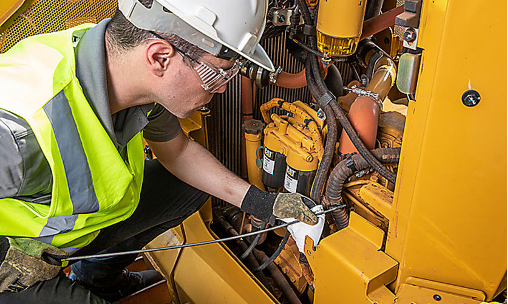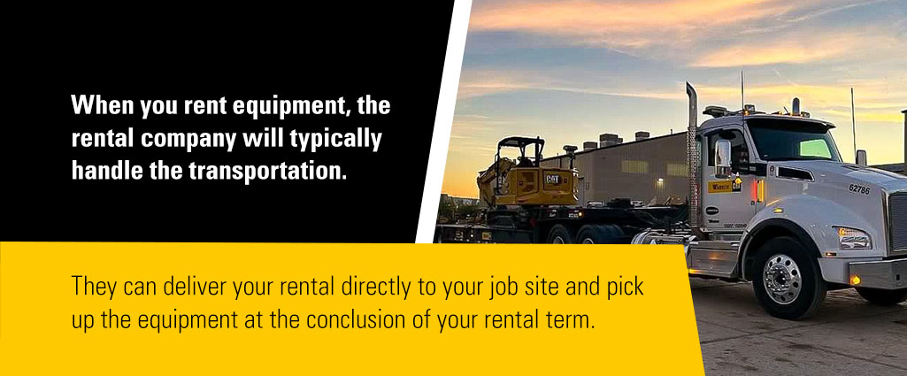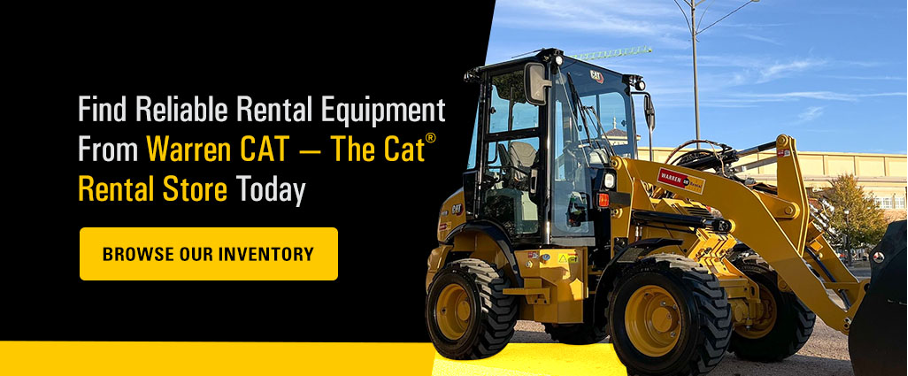Sticking with a routine maintenance schedule can help you ensure good equipment health and boost fleet management. Regular service is essential for ensuring your fleet’s safety, reliability and performance. However, warning signs can vary, and you may need to be made aware of what a certain symbol or indicator means.
Learning the most common warning signs of heavy equipment helps you quickly detect when your machines need professional inspection and service, allowing you to keep them in top condition.
Warning Signs That Indicate Your Equipment Requires Service
Promptly tending to issues with your heavy equipment as they arise is integral to minimizing further damage, avoiding hazards and ensuring peak performance.
1. Low Fluid Levels or Leaks
Your machine’s fluids, including oil, fuel, hydraulic fluid and coolant, play a crucial role in proper functioning. Low fluid levels are among the telltale indications you should schedule a service appointment for your equipment.
Inadequate fluid levels can cause multiple issues:
- Increased friction
- Overheating
- Accelerated wear
- Equipment failures
Ensure you also address any leaks promptly, as your equipment’s fluids can pose an environmental hazard and safety risk. Routine service can help you streamline fluid management to ensure peak machine performance.
2. Decreased Equipment Performance
Another warning sign that your heavy equipment needs service is reduced performance in terms of efficiency, power or productivity. Some common causes of declining equipment performance include:
- Engine malfunction
- Damaged hydraulic system
- Overly worn components
When your fleet is not functioning at its best, it may cause delays that ultimately impact project timelines. You can help protect your bottom line by tending to potential issues immediately. Addressing performance concerns promptly can help prevent further damage and support safer, more efficient operation.
3. Damage or Excessive Wear
Inspecting your equipment visually to ensure it is in good working condition is always beneficial. As you look at your machines, check for signs of damage that may negatively impact efficiency, compromise structural integrity and impose safety risks. If your machine has cracks, leaks or damaged components, it is time for service.
Belts, tracks, hoses and cutting edges are some of the most worn components. To support optimal operation, ensure you repair and replace equipment parts as needed.
4. Difficult Starts, Rough Running or Engine Stalling
Pay close attention as you fire up your equipment’s engine. Difficulty starting is a top warning sign your heavy equipment requires prompt servicing. These issues often indicate malfunctions or failures of the following parts:
- Battery
- Starter motor
- Fuel system
- Ignition components

Issues with your fuel system or engine may cause irregular idling, vibration or misfiring that can harm overall equipment performance. Take all engine problems seriously and schedule service immediately, as they can increase safety concerns and risks at your job site.
5. Alert Indicator and Warning System
Another key sign your machine needs service is an alert on your monitoring system. You may see a warning light or message indicating an issue, malfunction or failure.
For example, a dashboard light may indicate that the engine temperature is too high or the battery level is too low. Knowing your heavy equipment’s alert symbols and their meaning is essential to act quickly when your machine has issues.
Address indicator lights immediately. Ignoring them can result in accidents, hazards and high costs. Regularly monitor the machine’s warning system and schedule an appointment with an expert technician when you notice a new alert.
6. Unusual Noises
If you hear strange sounds from your machine, this could be a crucial warning sign that your equipment needs professional servicing.
Grinding noises often indicate problems with the machine’s mechanical components like gears or bearings. The wear or misalignment of belts or other moving parts often causes a high-pitched screeching sound. A loud hissing sound can come from the equipment’s hydraulics or cooling system.
Listen for irregular noises when starting the machine’s engine. By staying in tune with these heavy equipment service signs, you can protect your fleet’s reliability and life span.
The Importance of Routine Inspections and Service
Protecting your equipment with routine inspections and timely service benefits your operations and bottom line for a few key reasons.
1. Supporting Optimal Safety and Performance
When you suspect an issue with one of your machines, you should stop using it immediately. One malfunction can pose a serious risk on your job site, so schedule service as soon as possible to ensure operator and job site safety.
In addition to supporting a safer working environment, you can also enhance equipment performance by ensuring its components are in great condition.
2. Saving on Long-Term Repair and Replacement Costs
One of the best ways to protect your business’s bottom line is to invest in preventative maintenance and coordinate immediate service when something goes wrong with one of your machines. Tending to potential problems early allows you to intervene before a component or system develops more extensive and expensive issues.
3. Extending Equipment Working Life
Regular servicing helps keep your equipment in optimal condition for longer, prolonging the machine’s working life and helping maintain its value. Small tune-ups can go a long way in keeping your fleet in top working condition. Proper maintenance and attention to detail are paramount if you’re looking to maximize your investment.
4. Equipment Reliability and Reduced Downtime
Your machines must be ready for action when you need them. Prioritizing service is one of the most impactful ways to ensure equipment reliability to support productivity and stay on schedule. Maintaining your machines helps you combat unplanned downtime, which can negatively impact project timelines and lead to financial losses.
5. Protect Resale Value
Another reason to stay on top of your equipment service is to protect your investment and the machine’s resale value. Proper heavy equipment maintenance and documentation can help you sell or trade in your equipment model at a higher sale price than you might get otherwise.
Protect Your Heavy Equipment Fleet With Help From the Service Professionals at Warren CAT
If you need Cat® equipment service or repair in Oklahoma, West Texas or the Texas Panhandle, turn to Warren CAT. We want to help you optimize job efficiency and productivity by handling all of your equipment service needs.
You can rely on our experienced, highly trained technicians for expert maintenance to keep your machines functioning at their best. We also provide round-the-clock emergency repair services to ensure you have the tools and equipment your project requires when you need them.
Contact us at Warren CAT to schedule service today or visit a location near youto speak with a technician.



















